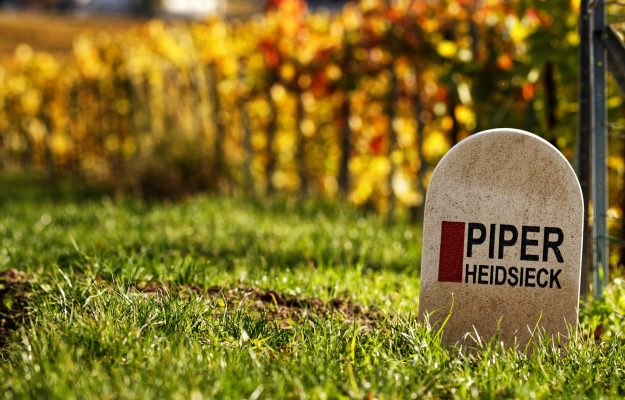360- degree sustainability becomes increasingly important in the wine world. It’s been shown in its way also by the growth of the wineries certified with B-Corp, one of the most restrictive models in the world, which takes into consideration, not only the relationship of companies with the environment but also with society, employees, suppliers and the territory in general. And if in Italy to the already certified Cielo & Terra and Perlage Winery in Veneto, Feudi di San Gregorio in Campania, and Casa Vinicola Marcel Zanolari in Valtellina, recently (in July 2022) added also Avignonesi, the important brand of the Nobile di Montepulciano territory, now to the group of B-Corp wineries in the world (which includes companies such as Concha y Toro and Symington Family Estates, among others), have joined also the first Champagne brands. Which are the Maison Piper-Heidsieck, Charles Heidsieck, and Rare Champagne, all owned by the Epi family group of the Descours family (which also owns Biondi-Santi in Italy, a company that is the history of Brunello di Montalcino, and Isole and Olena, a recently acquired icon of the Chianti Classico, ed). “With this certification, the iconic Champagne houses – explains a note - consolidate their social and environmental commitment and revisit business processes in order to develop a business model anchored to a mission with a positive impact on nature and society”. Among the most difficult to obtain, the B- Corp certification evaluates both the social and environmental impact of each brand according to 200 questions defined by B-Lab, regarding the governance, employees, communities, and the environment. The B-Corp certification requires maximum transparency towards all interested parties, not just shareholders, making the company's performance - measured according to the B-Lab standard - freely available through its B-Corp profile published on the website of B-Lab. The B-Corp certification does not only consider a product or a service in its analysis. It is an overall evaluation of the positive impact of the entire company in order to help it embark on a path of continuous improvement. “We are very proud to be part of this community of pioneers: a global movement of entrepreneurs who look at business as a “force for good” – comments Damien Lafaurie, president and CEO of the Epi Wine & Champagne Division - capable of transforming the world economy for the benefit of all people, the social community and the planet. We are honored to be the first Champagne producers to obtain the certificate of B-Corporation and we share B-LaB’s vision of working for an inclusive, equitable, and regenerative economic system. We hope to be an inspiration for other producers in the wine sector and that they join the cause. I am particularly proud of the tremendous work done by the Piper-Heidsieck and Rare Champagne teams in carrying out the profound transformation required by the B-Corp certification, and I am sure we will continue to improve in the future,” adds Lafaurie. “My hope is that our particular approach will stimulate collective initiatives in the Champagne appellation in favor of social and environmental issues”.
Among the concrete initiatives undertaken by the fashion houses to obtain B-Corp certification, there is the inclusion in the corporate status of an objective that makes the company of public utility oriented to create a concrete positive impact on society and the environment; the reduction of the carbon footprint by 2030 - in line with the Paris climate agreement - by 61% in absolute terms, for areas 1 and 2 and by 46% in terms of intensity per bottle produced, for area 3, with participation in the Science-Based Targets initiative and achieving zero carbon emissions long before 2050; the launch of an ambitious energy saving program (-40% by 2025), completely eliminating the use of fossil fuels in production activities and using 100% renewable electricity; the passage to 100% of suppliers of European origin by 2030. Still, the group explains, that among the objectives is the continuation of sustainable environmental practices in the owned vineyards.
Currently, the two houses use zero herbicides, zero pesticides, zero chemicals for the treatment of rot in the vineyard, and zero Cmr products. They also support the use of organic practices, vitiforestation, and all initiatives that promote biodiversity in vineyards. But we also look at the support for the Vdc (Sustainable Viticulture in Champagne) conversion of all the partner winegrowers by 2025; the introduction of sustainable development objectives for each individual employee in order to accelerate the spread of the best practices in all sectors and at all company levels; the ongoing commitment to gender equality at all levels of the organization; the training of a diverse and varied group of employees, hiring young talents with different backgrounds and supporting the “Nos Quartiers ont des Talents” initiative.
Copyright © 2000/2026
Contatti: info@winenews.it
Seguici anche su Twitter: @WineNewsIt
Seguici anche su Facebook: @winenewsit
Questo articolo è tratto dall'archivio di WineNews - Tutti i diritti riservati - Copyright © 2000/2026







































































































































































































